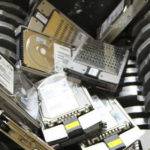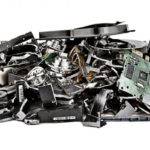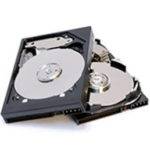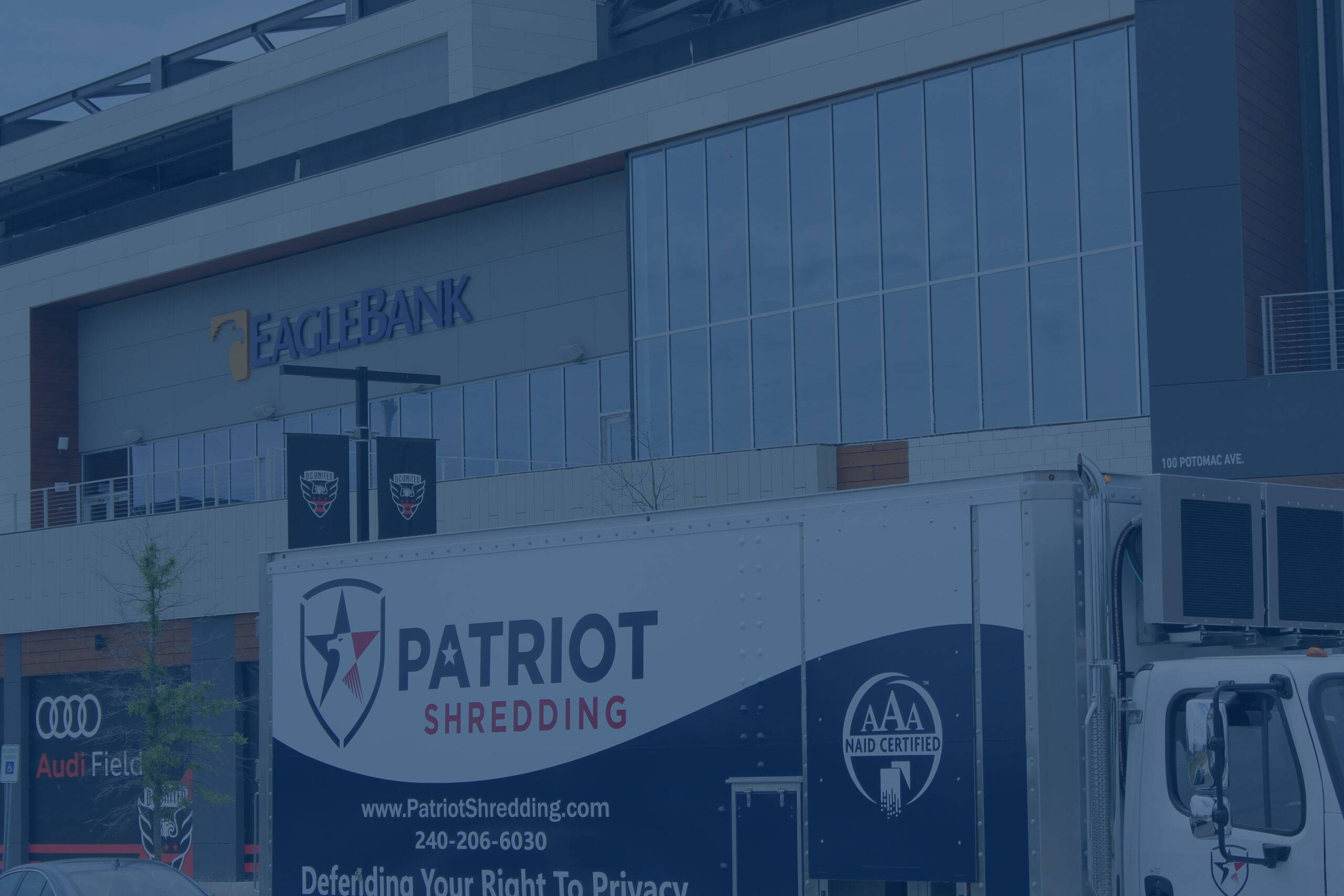1. Advantages of Hard Drive Shredding
 Most people get worried when they are about electronic media destruction i.e. recycling of electronic components like their computers. Data in the disk is not permanently removed unless you deliberately remove yourself through overwriting, physical disk destruction, and degaussing. Electronic media destruction is the best method for protection if you are concerned about sensitive data. It is a more secure hard drive disposal, and that is using a hard drive destruction machine. It is important to erase data from hard drive before selling it. You want to ensure that data would not be recovered anymore once you have deleted it.
Most people get worried when they are about electronic media destruction i.e. recycling of electronic components like their computers. Data in the disk is not permanently removed unless you deliberately remove yourself through overwriting, physical disk destruction, and degaussing. Electronic media destruction is the best method for protection if you are concerned about sensitive data. It is a more secure hard drive disposal, and that is using a hard drive destruction machine. It is important to erase data from hard drive before selling it. You want to ensure that data would not be recovered anymore once you have deleted it.
There are plenty of people who think that the tasks required to erase your hard disk data are tedious. There are a number of reasons why a company might need to dispose of information. You have to be careful about the kind of hard drive shredding that you use. File shredding lets you choose the most wanted file you want removed and the software will only remove that file. Data destruction is the way of removing remnant data in a disk by executing methods to get into the remainder data and make it unrecoverable. Secure, Professional, and Complete Digital Information Destruction is absolutely essential in today’s digital environment. You need to think about is how to dispose of your electronic media in a safe and secure way.
There are many companies who specialize in secure hard drive disposal. You should ensure for use these companies. Data destruction is a hard drive disposal technique used by many. The other method that is commonly used to destroy electronic media is degaussing, where magnets are used to destroy the information. Doing a clean hard disk erase, you would make it extra difficult for snoopers or spies to check the file that you have in your computer.
Hard drive shredders get relieve of confidential data by overwriting the deleted files. It is also equally important to destroy and dispose of data that is no longer required or useful for business purposes. Physically destroy the hard disk if it is damaged and cannot be run your computer to do the software wiping. It is natural that you might have tried you level best to remove all the details from the computer hard drive but it will remain in some corners. Disposing of the files the normal mode would be giving someone access to the information listed on the document files. If you really want to erase your private data permanently beyond recovery, you should make use of good file eraser software.
Advantage of using hard drive shredding are these.
● It touches only your deleted files.
● It can’t harms your hard disk drive.
● Hard Drive Shredding removes any change of your data ever being recovered.
Permanently hard drive erasing from a hard drive is in practice extremely difficult. Do the hard disk disposal yourself. Play around with your disk or unleash your rage in it by using house tools to strike, pound, drill, or even burn hard disk drives. Software destruction, while not as fool proof as physical data destruction. Physical data destruction, as the name suggests, is the method by which data is completely destroyed via the destruction of the hard disk itself.
Article source: selfgrowth.com
2. How Do You Dispose Of Old Tapes?
 Now that we’ve all agreed that, while selling your used backup tapes on eBay or to a recycler may be good for the environment, it could also be hazardous to your employer and/or your career, the question remains: How do you dispose of old backup tapes? Do you just keep them squirreled away in storage, hoping to retire before you have to deal with it? Or do you just throw them in the trash, secure in the knowledge that the data is AES-encrypted?
Now that we’ve all agreed that, while selling your used backup tapes on eBay or to a recycler may be good for the environment, it could also be hazardous to your employer and/or your career, the question remains: How do you dispose of old backup tapes? Do you just keep them squirreled away in storage, hoping to retire before you have to deal with it? Or do you just throw them in the trash, secure in the knowledge that the data is AES-encrypted?
Now that we’ve all agreed that, while selling your used backup tapes on eBay or to a recycler may be good for the environment, it could also be hazardous to your employer and/or your career, the question remains: How do you dispose of old backup tapes? Do you just keep them squirreled away in storage, hoping to retire before you have to deal with it? Or do you just throw them in the trash, secure in the knowledge that the data is AES-encrypted?Assuming that you have some tapes you wrote data to before you started encrypting — and let me take this opportunity once again to remind you that you should be encrypting all your tapes, even if you just use the encryption function in your backup software and used the same key for all your tapes — keeping them forever isn’t really a good idea. Some smart lawyer will try to subpoena your really old data and you’ll be working nights and weekends to deal with it.
The first thing you have to decide is how badly someone wants the data on your old tapes. If you think someone may dumpster dive for your tapes and then spend many, many dollars to recover the data with electron microscopes and other cool spy stuff, simple solutions aren’t going to cut it.
Let’s take a quick look at alternatives good enough for sensitive, but not classified, information for those of us in the real world. I’ll rate each approach from 1-5 in hassle, odds of data recovery, environmental impact, and cost.
Running the tape through your drive and telling your backup software to erase, or write nonsensitive data to the tape, can be effective, if very slow. It also won’t work with damaged tapes or for tapes you don’t have a working drive for. The wear and tear on your tape drives also is an issue.
Once they’re overwritten, tapes can be tossed in the trash or even sold for recycling. If the NSA’s after you, it may be able to recover some data from previous backups, but it will require specialized hardware, so Akbar and Jeff’s Industrial Espionage probably can’t. Hassle — 5; odds of recovery — 3; environmental impact — 4; cost — 3.
Physical destruction is so satisfying, especially the toss of tapes in a bonfire type. Burned tapes are pretty much impossible to read, but the noxious fumes could kill you and land you in the slammer if Ranger Rick comes to see what all the black smoke is about. Hassle — 3; odds of recovery — 5; environmental impact — 5; cost — 1.
Running the tapes through an industrial shredder or wood chipper also makes them unreadable and the bits can go in the landfill with the rest of the trash. It’s emotionally satisfying and can supply your organization with all the confetti you need for years. On the other hand, industrial shredders are expensive. Hassle — 1 (if you have the shredder or use a drive-up shredder truck); odds of recovery — 5; environmental impact — 2; cost — 3.
Degaussing, or bulk erasing, wipes the magnetic domains on your tapes by exposing the tapes to a strong, alternating, magnetic field. Back in the old days, when we made cassette recordings of LPs and FM broadcasts, running the cassette through a $30 Radio Shack bulk eraser cut the background noise substantially, especially if you were reusing a tape.
I recently had a client pull the bulk eraser they previously used on floppy disks and 9-track tapes out of a closet to use on some SDLT tapes they were retiring as part of a switch over to LTO (Linear Tape-Open). I convinced them to try to read a tape after it had been through the bulk erase cycle and it worked like a champ. Today’s tapes have 2 to 3 times the coercivity of older media and require a much stronger magnetic field to erase.
You can get degaussers suitable for today’s tapes, and even hard drives, from vendors like Garner Products for $2,000 and up. Also bear in mind that, while you can degauss DLT (Digital Linear Tape) and SDLT (Super DLT) tapes and reuse them, LTO tapes have a prerecorded magnetic servo to align the heads to tape tracks. Degauss these tapes and they’re useless. Hassle — 2; odds of recovery — 5 (if you have the right degausser); environmental impact — 2; cost 4.
If the NSA is after you, I suggest degaussing AND shredding.
Article source: informationweek.com
3. Survey: 40% of hard drives bought on eBay hold personal, corporate data
 A New York computer forensics firm found that 40% of the hard disk drives it recently purchased in bulk orders on eBay contained personal, private and sensitive information — everything from corporate financial data to the Web-surfing history and downloads of a man with a foot fetish.
A New York computer forensics firm found that 40% of the hard disk drives it recently purchased in bulk orders on eBay contained personal, private and sensitive information — everything from corporate financial data to the Web-surfing history and downloads of a man with a foot fetish.
Kessler International conducted the study over a six-month period, buying up disk drives ranging in size from 40 GB to 300 GB from the United States and Canada. The firm, which completed its research about two weeks ago, bought a total of 100 relatively modern drives, the vast majority of them Serial ATA.
“With size of the sample, I guess we were surprised with the percentage of disks that we found data on,” said Michael Kessler, CEO of Kessler International. “We expected most of the drives to be wiped — to find one or two disks with data. But 40 drives out of 100 is a lot.”
Kessler believes the drives were likely from computers sold to third-party re-sellers that disassembled them and sold off the parts.
Kessler’s engineers had to use special forensics software to retrieve data from some of the hard drives, but other drives contained sensitive data in the clear, having never been overwritten or erased. The data included personal documents, financial information, e-mails, DNS server information and photographs.
“The average person who knows anything about computers could plug in these disks and just go surfing,” Kessler said. “I know they found a guy’s foot fetish on one disk. He’d been downloading loads and loads of stuff on feet. With what we got on that disk — his name, address and all of his contacts — it would have been extremely embarrassing if we were somebody who wanted to blackmail him.”
Kessler said his company specifically avoided buying drives whose sellers indicated that the drives had been erased.
Kessler International offered this breakdown of the kind of data it retrieved: Personal and confidential documents, including financial information, 36%; e-mails, 21%; photos, 13%; corporate documents. 11%; Web browsing histories, 11%; DNS server information, 4%; miscellaneous data, 4%.
“We were more concerned with searching for people’s identification, which is what we found, but we were surprised by all the corporate spreadsheets and business finance records we found,” Kessler said.
The forensics firm even found one company’s “secret” recipe for French fries, Kessler said.
In recent years, hard drives have shown up on eBay that contain all kinds of sensitive data. In April 2006, Idaho Power Co. learned that drives it thought had been recycled had actually been sold on eBay with the data still intact. The Boise, Idaho-based utility had used the drives in servers; when bought on eBay, the drives still contained proprietary corporate information such as memos, customer correspondence and confidential employee information.
And in 2007, a supposedly new hard drive purchased on eBay was found to contain information from the Arkansas Democratic Party.
Charles Kolodgy, an analyst with research firm IDC in Framingham, Mass., said drives from PCs are mostly easily protected even after resale by using a full-disk encryption (FDE) product, but he said prior to selling an old machine, users should still format the drive and use overwrite tools just to be sure. “But if you have FDE you don’t need to be as concerned if something falls through the cracks,” he said. For larger hard drives, disks should be erased using industrial degaussers. As for the drives Kessler purchased from eBay, the company plans to use a U.S. Department of Defense-grade degausser and erase the data. It will then either throw out the drives or re-use the models with sufficient capacity.
Article source: computerworld.com


